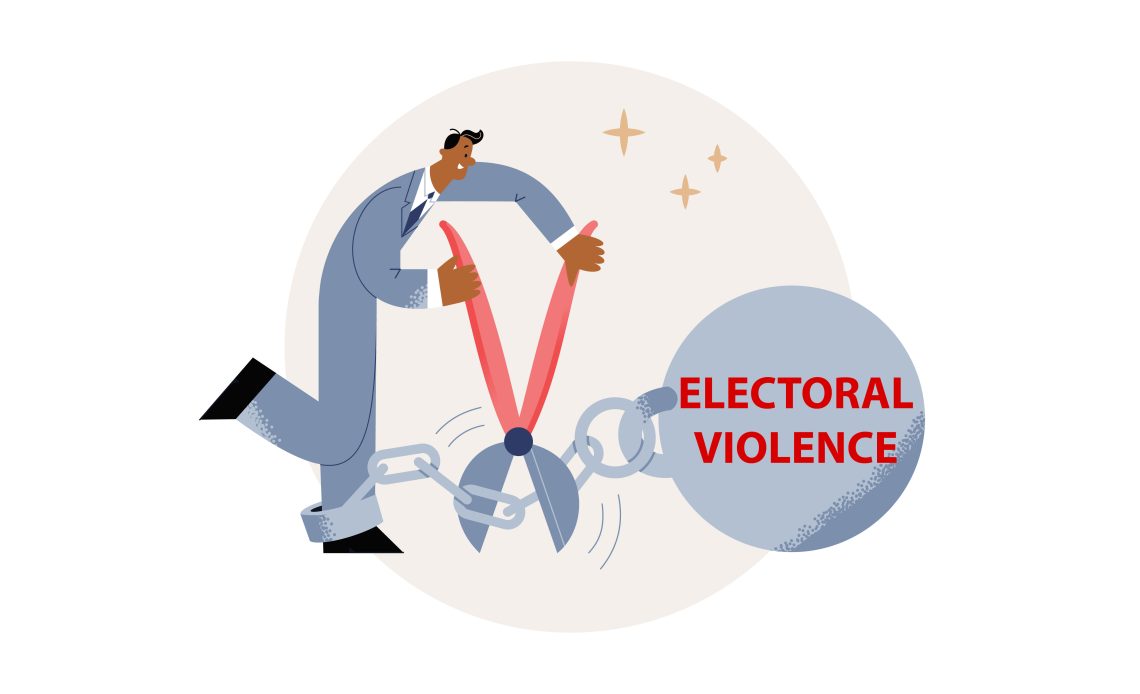
‘Electoral Violence’ is an overarching term that encompasses all acts or threats of coercion, intimidation, or physical harm that arise in the context of electoral competition and are perpetrated physically, psychologically or structurally to affect the electoral process. Over the past one-and-a-half decade, electoral violence has been an invariable and inevitable aftermath of general elections in Kenya.
Elections in Kenya are so viciously contested that notwithstanding the candidate that is declared the winner, the losing candidate is always inclined towards mobilizing their supporters to revert to some form of electoral violence. In fact, the diverse forms of electoral violence have become the norm, rather than the exception. Quite saliently, the electoral violence orchestrated by the megalomaniac political leaders always throws millions of Kenyans into a precarious state of social and economic deterioration.
Given this backdrop, our history is replete with priceless learning opportunities which, if seized, may enable us avert the potholes that have impeded our socio-economic progress as a country. In other words, we can get a glimpse of Kenya’s socio-economic future by having a glance at its past. The greatest, and perhaps the hardest, lesson we have learnt from previous general elections is that electoral violence is a shackle that fetters our country’s economic growth.
Indeed, electoral violence has previously crippled and devastated multiple sectors that are crucial to the growth of our economy. Some of the most salient sectors that took scathing blows following the 2007 post-election violence include, among others, the financial markets, the agricultural sector, the tourism sector as well as the small and medium enterprises.
Since electoral violence is often typified by the sabotage of major transport channels in the country, the enormity of the losses in the agricultural sector cannot be overstated. The violence witnessed in different parts of the country such as the Rift Valley posed a huge challenge to the distribution of agricultural produce and the transportation of agricultural input. As a result, Christopher Ksoll et al have demonstrated, for instance, that growers and exporters of flowers in Kenya recorded a 24% reduction in the exportation of flowers.
Furthermore, the tourism sector, which contributes immensely to the country’s wealth, was also brought to its knees. Given the gruesome violence that had made it to the international limelight, many tourists called off their scheduled travels into the country and airlines such as Kenya Airways cancelled numerous flights into Kenya. As a corollary to the foregoing, many people in the tourism sector lost their jobs and were thrown into the limbo of indefinite unemployment.
Without doubt, Kenya’s geographic location makes it an essential gateway for supplies to many landlocked countries in East Africa such as Uganda, Rwanda and Burundi as well as Central Africa. As such, the economic effects of the electoral violence in Kenya spilled over to these landlocked countries thereby stifling not only their industrial but also the key commercial activities.
The adverse effects of electoral violence as highlighted in this paper are just a tip of the iceberg and are not conclusive of the total extent to which Kenya’s economy was dented by the post-election violence. Whereas the country may have recovered from some of these tragic economic impacts, every Kenyan should be indignant to a recurrence of the 2007-2008 post-election violence.
Needless to say, any form of electoral violence in the upcoming general elections slated for 9th August, 2022 shall only aggravate our already dilapidated economy and the astronomically high cost of living. It therefore behooves every patriotic Kenyan citizen to avoid the allure of unscrupulous politicians who exploit the discontent among the citizens and mobilize them to violence by offering money and favors.
Most importantly, state organs such as the National Cohesion and Integration Commission should crack the whip against all politicians who have started beating the drums of war by propagating hate speech during political rallies and other political fora. It is the duty of every Kenyan citizen to ensure the socio-economic well-being of the country and this may only be achieved through the concerted efforts of both the citizens and the state organs to ensure peace during the upcoming general elections.



#WritAfricaChallenge. I like this Article because I have learnt about the effects that come along with electoral violence after General elections in Kenya. Mostly we the youths are the ones used by our leaders to cause chaos. The economy is shattered and end up incurring many losses as a country, especially in the Agricultural and tourism sector. It is the duty of every Kenyan Citizen to ensure the socio-economic well-being of the Country.